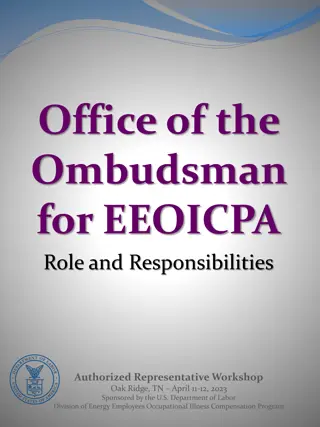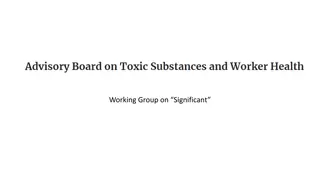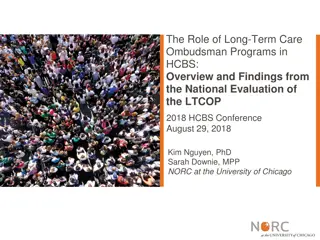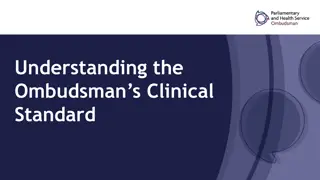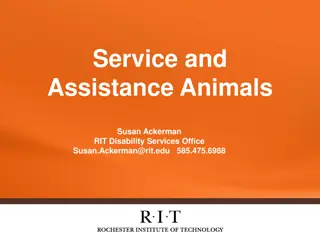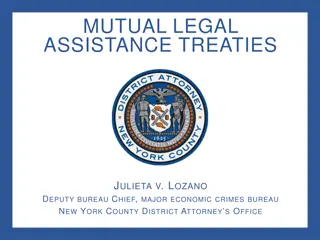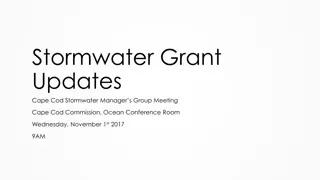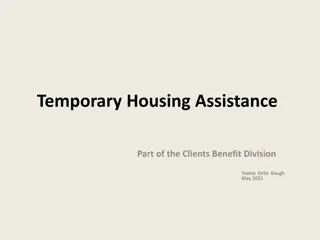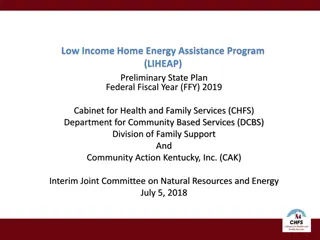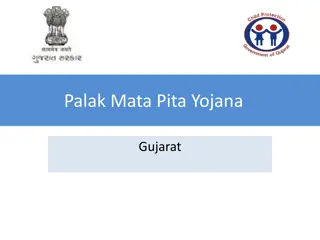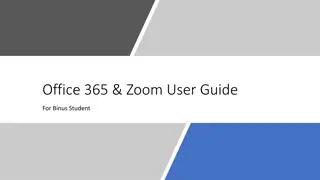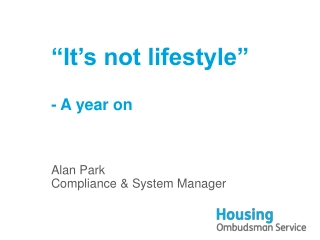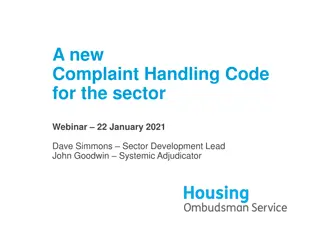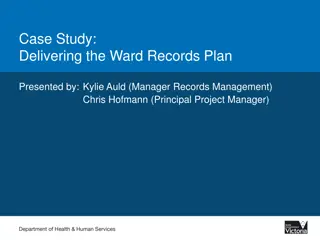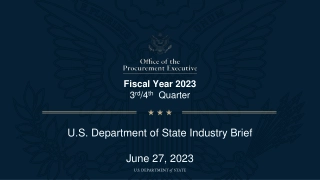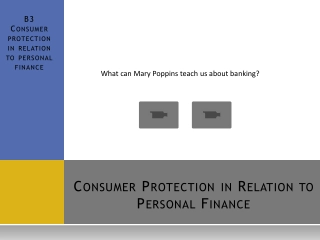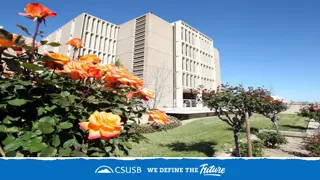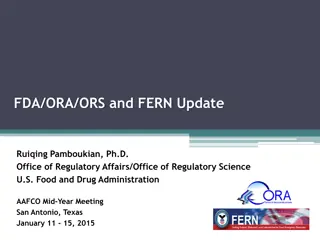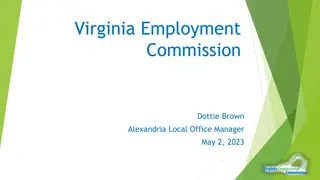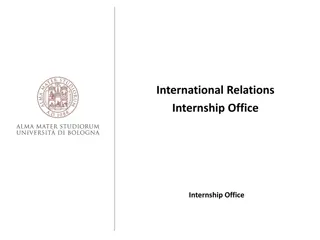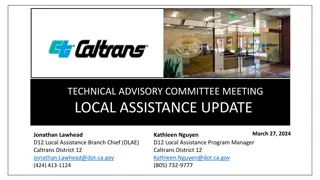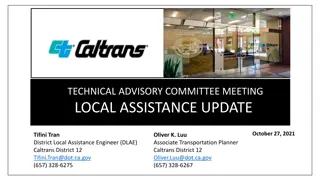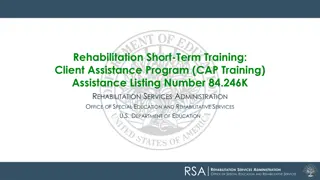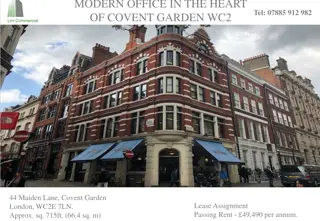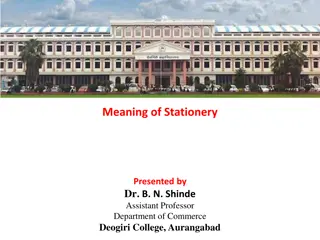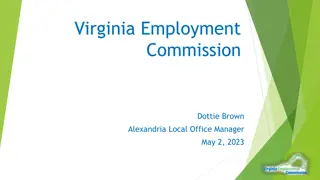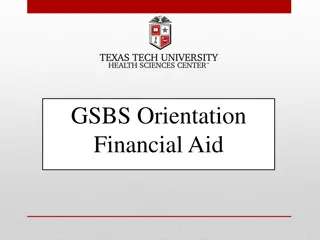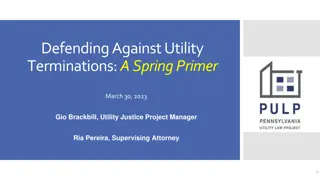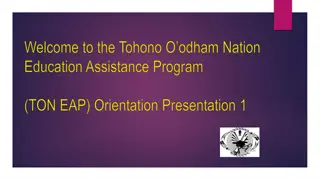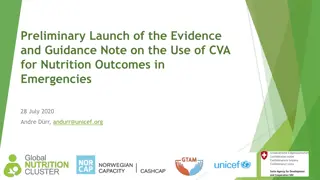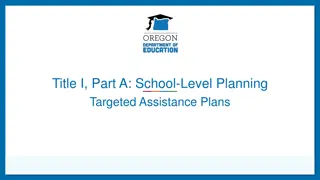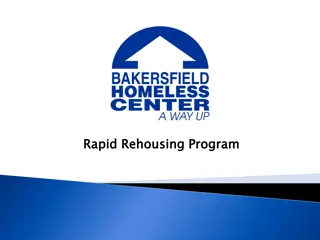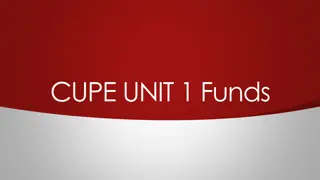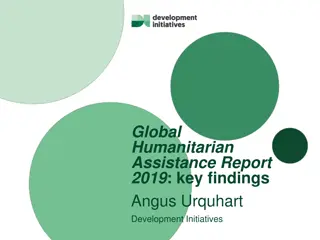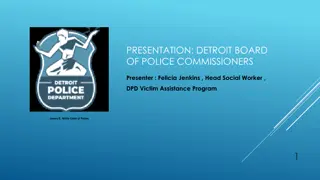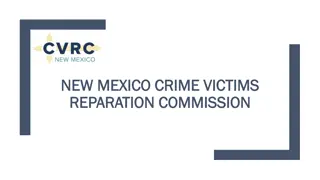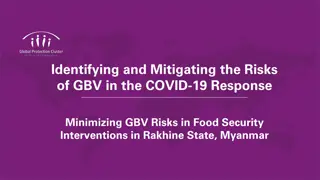Office of the Ombudsman for EEOICPA - Information and Assistance
The Office of the Ombudsman for the Energy Employee Occupational Illness Compensation Program Act (EEOICPA) provides confidential guidance, information on benefits, and assistance to claimants. They submit annual reports detailing received complaints and assist individuals with claim difficulties, all independently from the DOL Energy Program. However, the office has limitations and cannot rule on claims, reverse decisions, or lobby Congress.
Download Presentation

Please find below an Image/Link to download the presentation.
The content on the website is provided AS IS for your information and personal use only. It may not be sold, licensed, or shared on other websites without obtaining consent from the author. Download presentation by click this link. If you encounter any issues during the download, it is possible that the publisher has removed the file from their server.
E N D
Presentation Transcript
THE OFFICE OF THE OMBUDSMAN FOR THE EEOICPA JOINT OUTREACH TASK GROUP OAK RIDGE, TN APRIL 13, 2023
EEOICPA and THE OFFICE OF THE OMBUDSMAN History: October 2000 Congress enacted the EEOICPA. October 2004 - Congress passed legislation creating the Office of the Ombudsman for the EEOICPA.
OFFICE OF THE OMBUDSMAN The Office of the Ombudsman is an independent office within the U.S. Department of Labor (DOL). That means the Office of the Ombudsman is separate from the DOL Energy Program that makes decisions on your EEOICPA claims. All communication with the Office of the Ombudsman is CONFIDENTIAL.
Office of the Ombudsman Amanda M. Fallon Ombudsman Kim Holt Policy Analyst Steve Levin Policy Analyst Tonya Taylor Policy Analyst Curtis Johnson Policy Analyst
OFFICE OF THE OMBUDSMAN Duties: 1. Provide information on the benefits available under the EEOICPA. 2. Provide guidance and assistance to claimants.
OFFICE OF THE OMBUDSMAN Submit an annual report to Congress detailing: 3. a) The number and types of complaints, grievances and requests for assistance received during the year and; b) An assessment of the most common difficulties encountered by claimants during the year.
OFFICE OF THE OMBUDSMAN Limitations the Office cannot: Rule or make decisions on claims. Make DEEOIC reverse or change a decision. Make Congress revise the EEOICPA. Take DEEOIC to court. Lobby Congress. Act as an advocate. 1. 2. 3. 4. 5. 6.
OMBUDSMAN ASSISTANCE When the Office receives a complaint and/or request for assistance: 1. We work with claimants, attorneys, lay representatives, congressional staff and others. 2. We explain, review and discuss the EEOICPA claim development and benefits processes. 3. We answer questions and provide assistance to individuals encountering difficulties with their claims. 4. We discuss your concerns in our annual report to Congress.
OMBUDSMAN ASSISTANCE Outreach efforts and initiatives include: 1. Sponsoring town hall meetings. 2. Participating in Energy Program sponsored town hall meetings and events. 3. Offering opportunities for individuals to speak one-on-one with Ombudsman staff. 4. Coordinating efforts with the Joint Outreach Task Group (JOTG).
PRACTICAL INFORMATION: Current and former DOE employees may file claims (Form EE-1) for new illnesses as they are diagnosed (i.e. consequential conditions, additional skin cancers, new respiratory conditions, etc.). Survivors may file claims (Form EE-2) for illnesses not previously filed for under the EEOICPA by the employee. It is helpful to have the following documentation when filing your claim: medical diagnosis, employment information, survivorship information (death, birth or marriage certificates - if applicable). Make sure you have reported any/all potentially covered employment to the Energy Program. Review your Occupational History Interview for completeness and accuracy. If you remember additional information, send it in writing to your claims examiner.
PRACTICAL INFORMATION: The Energy Program may have your claim reviewed by a specialist (CMC, IH, Toxicologist) and you should be provided a copy of the expert s report with your Recommended Decision. You can request a copy of any specialist report from your claims examiner at any time, even before your Recommended Decision has been sent to you. Your request must be in writing. You can also request a copy of your claim file or any documents from your case file at any time. You must send a written request to the Energy Program.
PRACTICAL INFORMATION: If your claim is accepted for medical benefits, you can: File a claim for a consequential illness/injury if your accepted covered illness or treatment for your accepted covered illness causes a new illness or injury. Must write consequential condition next to the name of the consequential illness/injury on Form EE-1. File a claim for impairment compensation every two (2) years and sometimes sooner if you have a new illness, including a consequential illness, accepted during the two year period.
OFFICE OF THE OMBUDSMAN YOUR OPINION AND FEEDBACK MATTERS: The Department of Labor and Congress are interested in what you have to say. The Energy program is constantly making program changes and updates. You can ask us questions or seek information from our office. If you have complaints, grievances, or requests for assistance, as well as good things to say, we want to hear from you.
OMBUDSMAN CONTACT INFORMATION Mail: U.S. Department of Labor Office of the Ombudsman 200 Constitution Ave., NW, Room N-2454 Washington, D.C. 20210 Toll Free: 1-877-662-8363 Email: ombudsman@dol.gov Website: www.dol.gov/eeombd


